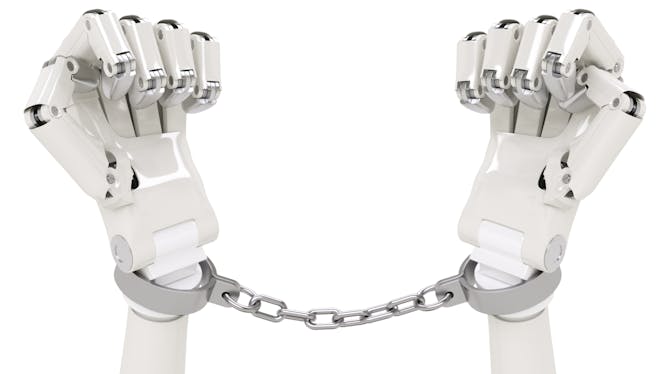
Should robots and artificial intelligence face additional restrictions?
maxuser/Shutterstock.com
Jeremy Straub, North Dakota State University
Artificial intelligence has so much beneficial potential that fears about it shouldn't prompt new regulations. Existing rules already govern human and machine behavior.
|
|
|
Health + Medicine
|
-
Michael Morrisey, Texas A&M University
Frustrated with Congress for its failure to replace Obamacare, President Trump took matters into his own hands and issued an executive order to nix parts of it. How his order will play out is unknown.
-
Sharona Hoffman, Case Western Reserve University
What can be done to prevent employers from rejecting individuals based on concern about future illnesses? Currently, nothing.
|
|
Politics + Society
|
-
Jessica Trisko Darden, American University School of International Service
President Duterte declared martial law back in March to aid the fight against Islamic militants. Many fear he will continue using this power.
-
Jose Miguel Cruz, Florida International University
Corruption, not gang warfare, is the root cause of the record violence in El Salvador, Honduras and Guatemala. Until public officials stop shielding criminal groups like MS-13, lawlessness will reign.
|
|
|
|
Trending on site
|
-
Jeyaraj Vadiveloo, University of Connecticut
How many healthy years of life do you have ahead before you become unhealthy – and then die? One model tries to find the answer.
-
David Skidmore, Drake University
China's surplus of unmarriageable men poses a stark dilemma for Xi and other leaders as they set the country's economic course for the next five years.
-
Roy Kilgard, Wesleyan University
The gravitational wave itself is the least exciting part of the announcement from LIGO and Virgo. Observing this new source answers many longstanding questions.
|
|
Today’s chart
|
-

 Philip Hackney
Louisiana State University
Philip Hackney
Louisiana State University
| |